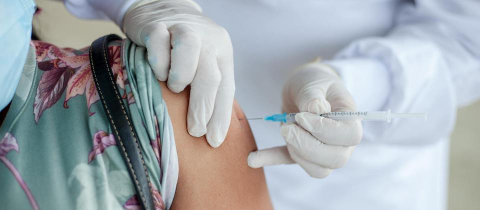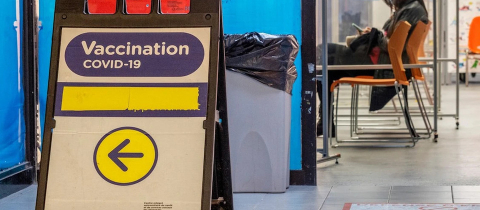This article was first published in The Montreal Gazette.
The death of a young person is a particularly tragic thing, especially when there seems to be no reason why it should have happened. The death of 19-year-old Don Béni Kabangu Nsapu is just such a case. Given that all the evidence to date shows that young people have a much lower mortality rate than older patients, it seems almost impossible that a young, otherwise healthy person should die of COVID-19. But even unlikely events do happen.
It is undeniably true that the mortality rate of COVID-19 infections increases with age. Compared to someone under 30, the risk of dying for someone over 30 is four times higher. For someone over 65, it is 90 times higher. For someone over 85, it is 630 times higher.
This realization should not be entirely surprising. Association studies have found that pre-existing conditions like high blood pressure and diabetes increase the risk of serious complications, and these are, of course, more common in older patients.
So why, then, did an otherwise young, healthy person die of COVID-19? For that matter, why did the relatively young Broadway actor Nick Cordero die of COVID-19 earlier this year after a very long and very complicated hospital stay that involved three months on a ventilator? Cordero was 41.
While we may not know the reason in individual cases, basic statistics indicate that the greater the number of young people who are infected, the greater the number of young people who will die, even if such deaths are likely to remain relatively rare.
The troubling trend in recent days has been the uptick of new coronavirus infections in young people. New cases in those under 40 have been on the rise especially in places like British Columbia and Ontario. The uptick in new cases was so concerning to officials that recruited actor Ryan Reynolds to reach this younger demographic.
Unfortunately, many people — of all ages — still believe that this virus is “no big deal.” They see low death rates and proclaim that this virus is no worse than the flu, even though it has already killed more people than the flu by a wide margin and there is reason to suspect that coronavirus deaths may be underreported. They are falsely reassured by low death rates, at least in young people, and do not follow public health guidelines. Some even protest against mask use.
What they fail to realize is that even a small risk, if repeated often, can add up quickly. Let’s say that the risk of dying from coronavirus if you get infected is 0.1 percent or one in 1,000. That is a very low risk of death, but a 0.1 percent risk of death when applied population-wide results in major mortality. If one million people get infected, then 0.1 percent translates into 1,000 deaths, and I am still of the opinion that that is unacceptably high.
The best way to prevent deaths from COVID-19 is to limit community spread of the virus. If we allow the virus to spread unabated and do not all take very simple safeguards (keep your distance, wear a mask, wash your hands), then more and more people will get infected, including some people who have been careful. Many of them will be fine. But a small number will suffer complications like heart attacks, strokes, and blood clots, and a small proportion will die.
With very small sacrifices to our daily routine, we can have a major impact on the number of cases, help prevent a second wave, and maybe even save a life, your own or someone else’s. I think that’s worth the effort because every death is a tragedy.







